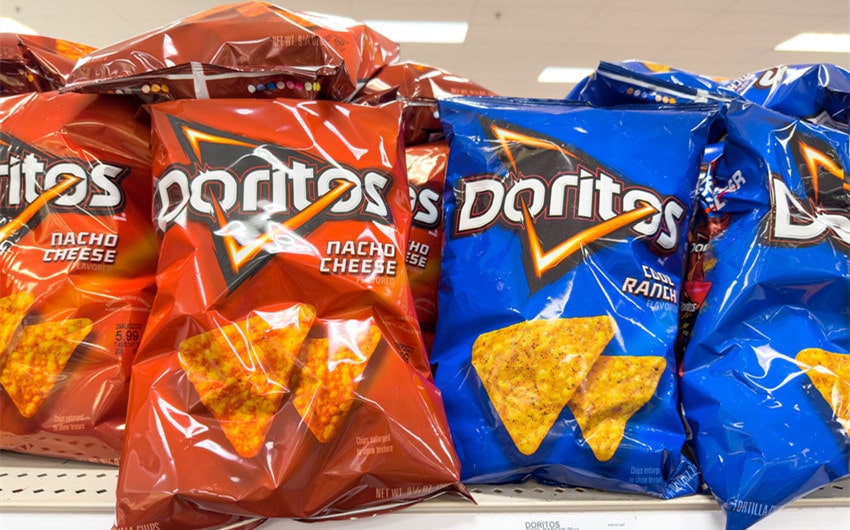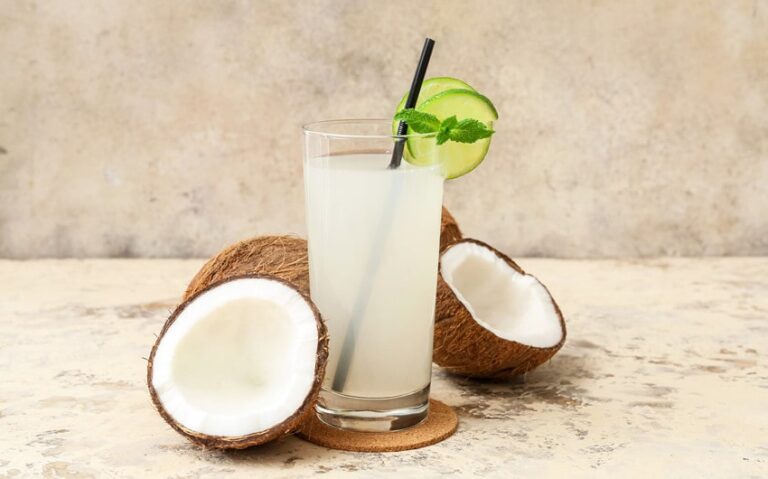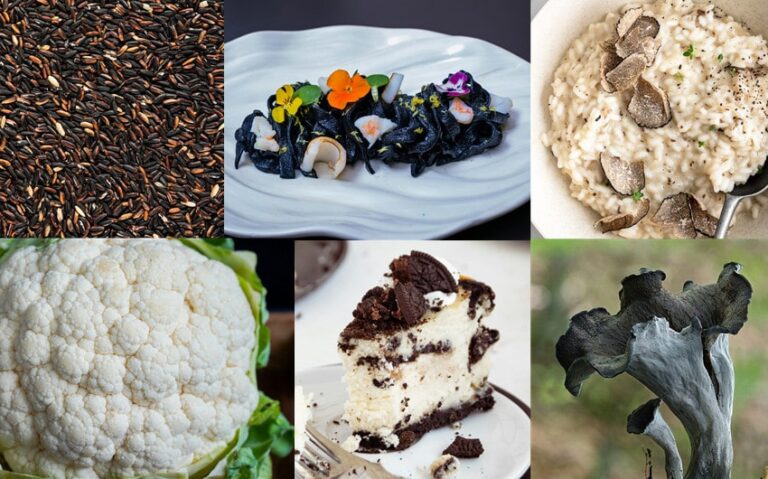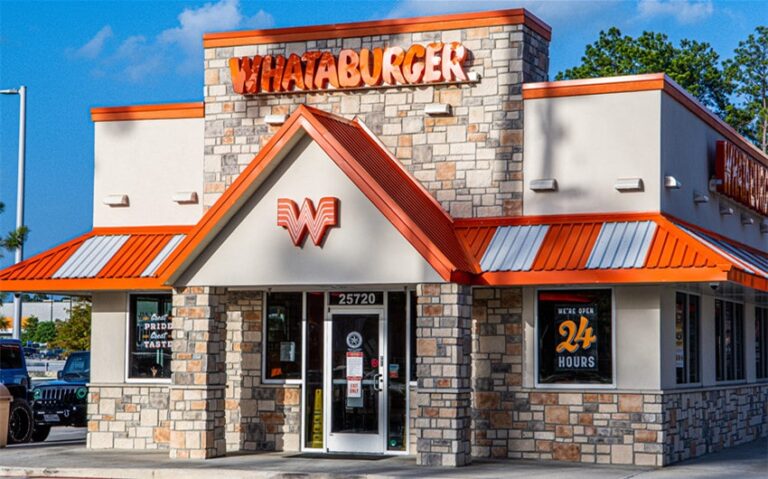For many Muslim consumers, ensuring that snacks meet halal standards is an important part of daily life. With Doritos being a popular choice worldwide, a common question arises: are Doritos halal? Whether you enjoy them at parties or as a quick snack, it’s essential to understand what goes into the chips you’re eating. From ingredients to certification, finding out whether your favorite Doritos flavors align with halal guidelines can help you make informed choices. In this article, we’ll explore the details behind Doritos and their halal status.
What Does Halal Mean?
Halal is an Arabic word that means “permissible” in accordance with Islamic law. For food to be considered halal, it must meet certain requirements outlined in the Quran and Hadith (sayings and actions of Prophet Muhammad). These guidelines dictate not only what can be eaten but also how the food is prepared, handled, and processed. Halal extends beyond meat to include all food items, drinks, and even the methods used in the production of food.
Key Concepts of Halal:
1. Permissible Ingredients:
The ingredients used in a halal product must come from lawful sources. This means no pork or its by-products, and no alcohol can be present. Animal-based ingredients must come from animals that are slaughtered according to Islamic guidelines, known as zabiha.
2. Avoiding Haram (Forbidden):
Haram refers to anything that is explicitly forbidden in Islam. This includes certain animals (like pigs), intoxicants (like alcohol), and improperly slaughtered animals. For a food to be halal, it must be free from any haram substances.
3. Cross-Contamination:
Even if a food itself is halal, it can become haram if it comes into contact with forbidden substances during preparation, packaging, or transportation. Therefore, manufacturers must ensure that halal products are processed separately to avoid cross-contamination.
4. Certifications:
To confirm that a product meets halal standards, many companies seek certification from halal regulatory bodies. These certifications are issued after thorough checks to ensure the entire production process, from sourcing to packaging, complies with Islamic law.
Why Halal Matters in Snacks:
For many Muslims, observing a halal diet is a fundamental part of their faith. With snacks like Doritos being a popular choice, it’s important for consumers to know whether the ingredients and preparation methods align with halal standards. Even seemingly innocent ingredients, like cheese or seasoning, can sometimes contain animal-based enzymes or other substances that are not halal, which is why understanding the ingredients and certification is so crucial.
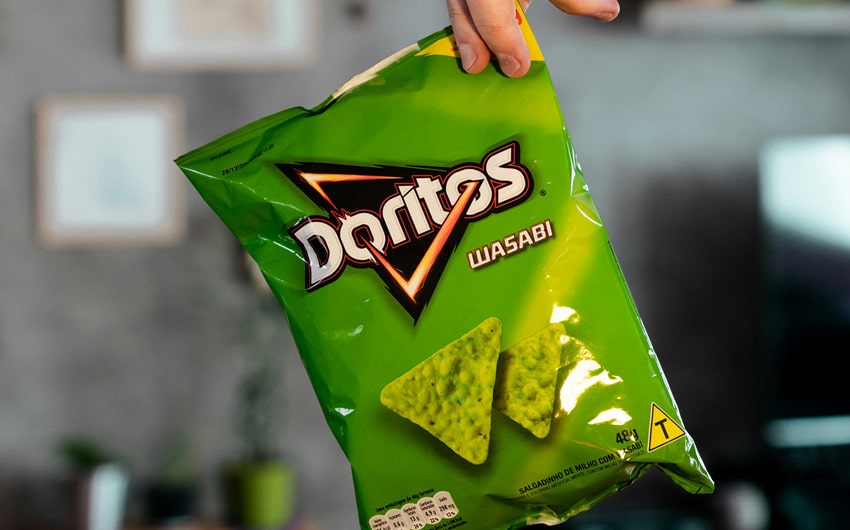
Ingredients in Doritos: Halal or Haram?
When determining whether Doritos are halal or haram, it’s essential to examine the ingredients used in the production of these popular chips. While many snacks may seem harmless, certain additives or processing methods can make them unsuitable for halal consumption. Let’s take a closer look at the key ingredients in Doritos and evaluate whether they align with halal guidelines.
Common Ingredients in Doritos:
1. Corn and Vegetable Oils
The primary base of Doritos is made from ground corn and cooked in vegetable oils such as sunflower or canola oil. Both corn and vegetable oils are halal, as they are plant-based and do not involve any animal-derived products in their basic form. So, these ingredients are generally considered permissible.
2. Cheese and Dairy Products
Many Doritos flavors, particularly the cheese-flavored varieties like Nacho Cheese or Cool Ranch, contain cheese and other dairy-based ingredients. While cheese itself can be halal, it depends on how it is made. Cheese often contains rennet, an enzyme used in the cheese-making process, which can be derived from animals or plants. If the rennet comes from non-halal slaughtered animals, then the cheese is considered haram. If it is plant-based or from halal-slaughtered animals, then it is halal. Since Doritos typically do not specify the source of rennet, this raises concerns for halal-conscious consumers.
3. Flavor Enhancers (Monosodium Glutamate – MSG)
Monosodium glutamate (MSG) is commonly used as a flavor enhancer in snacks, including Doritos. MSG itself is halal as it is a chemically synthesized product and not derived from animals. However, the concern arises if the production of MSG involves alcohol or other haram ingredients, though this is rare. In general, MSG is considered safe and permissible unless specified otherwise.
4. Artificial Flavorings and Colorings
Doritos often contain artificial flavorings and colorings to enhance the taste and appearance of the chips. While most artificial ingredients are considered halal, they can sometimes be derived from alcohol or non-halal animal sources, making it important to verify their origin. If there is no clear information provided, these ingredients can fall into a doubtful category, which some halal consumers may choose to avoid.
5. Animal-Derived Enzymes and Gelatin
Some Doritos flavors may contain enzymes or gelatin, which are used in the production of seasonings or to stabilize flavors. These enzymes can be animal-derived, and if they come from non-halal sources, they would make the product haram. Doritos packaging typically does not clarify the source of these enzymes, which makes it difficult to determine whether the product is halal. In cases where animal enzymes are present, the chips would be considered haram unless they are sourced from halal-certified animals.
6. Alcohol or Alcohol-Based Ingredients
Some flavorings, especially in processed foods, can be derived using alcohol as a solvent. Even small amounts of alcohol in food make it haram according to Islamic dietary laws. While it is uncommon for alcohol to be listed in the ingredients of Doritos, the possibility of trace alcohol use in flavor extraction cannot be ruled out unless the manufacturer specifically declares the absence of alcohol in the flavoring process.
7. Natural Flavors
Natural flavors can be derived from plant or animal sources. Like artificial flavorings, if these natural flavors come from animals that have not been slaughtered according to Islamic law, or if they involve haram substances, they would be considered haram. Unfortunately, the term “natural flavors” is broad, and without more specific information, it’s difficult to confirm the halal status of the natural flavors used in Doritos.
Halal Concerns in Doritos Ingredients:
- Cheese and Rennet: The source of rennet in Doritos cheese flavors is often unspecified, raising concerns about whether it’s derived from halal animals.
- Enzymes and Gelatin: If these are derived from non-halal animal sources, Doritos would be considered haram.
- Natural and Artificial Flavors: Without clear information on the origin of these flavors, their halal status is uncertain, putting Doritos in a doubtful category for halal-conscious consumers.
Ingredients Generally Considered Halal in Doritos:
- Corn, vegetable oils (sunflower, canola), and MSG are typically halal and pose no issues for Muslim consumers.
In conclusion, while some ingredients in Doritos are generally considered halal, others—such as cheese, enzymes, and flavorings—pose challenges in determining whether the chips are fully halal. Without clear labeling or certification, it’s difficult to definitively state whether certain Doritos flavors align with halal standards.
Do Doritos Have Halal Certification?
One of the most important factors for Muslim consumers when determining if a food product is halal is whether it carries an official halal certification. Halal certification ensures that the entire production process, from sourcing to manufacturing, adheres to Islamic dietary laws. When it comes to Doritos, the presence or absence of this certification can vary significantly depending on the country and region where the chips are sold.
What is Halal Certification?
Halal certification is a seal of approval given by an accredited Islamic authority, confirming that the product has been prepared and processed according to Islamic guidelines. This means:
- Ingredients must be permissible (halal), such as plant-based items, halal-slaughtered animals, or synthetic additives.
- The production process must avoid contamination with haram (forbidden) substances like pork, alcohol, or improperly slaughtered animals.
- The product must be handled and packaged in facilities where cross-contamination with non-halal items is prevented.
When a product carries halal certification, Muslim consumers can trust that it meets these standards. The certification symbol is often prominently displayed on the packaging to reassure buyers.
Doritos Halal Certification Status by Region
1. United States:
In the U.S., Doritos products are manufactured by Frito-Lay, and many of the popular flavors, such as Nacho Cheese, Cool Ranch, and Spicy Nacho, do not carry halal certification. This is primarily because some of these flavors contain ingredients like cheese made with non-halal enzymes or flavorings that could involve haram substances. As of now, Frito-Lay has not sought widespread halal certification for Doritos in the U.S., leaving consumers uncertain about the permissibility of these chips under Islamic law.
However, certain plain or less-flavored varieties of Doritos, such as the Simply Organic Sea Salt Tortilla Chips, may not contain haram ingredients, though they still lack halal certification. This puts consumers in a gray area, where they may rely on ingredient scrutiny rather than official certification.
2. United Kingdom:
In the UK, where the Muslim population is larger, some Doritos flavors have been certified halal, depending on the manufacturing process and the use of halal-friendly ingredients. This is mainly due to stricter demand from Muslim consumers for products that align with Islamic dietary standards. Certain Doritos flavors available in UK stores may carry halal certification, but not all varieties are included. Consumers are encouraged to check for the certification symbol on the packaging or visit the manufacturer’s website for updated information.
For example, in the UK, plain varieties like Doritos Lightly Salted are more likely to be halal-friendly compared to flavored varieties like Nacho Cheese or Cool Original, which may contain non-halal cheese or flavoring ingredients.
3. Australia:
Similar to the UK, Australia has a significant Muslim population, and there is a growing demand for halal-certified products. Some Doritos flavors in Australia may be certified halal, particularly those that use simpler ingredients like sea salt or lightly flavored versions. However, much like in other regions, the more complex and flavored varieties may not carry halal certification due to the presence of potentially non-halal ingredients, such as enzymes or artificial flavorings.
4. Middle East:
In the Middle East, where halal dietary laws are more rigorously enforced, Doritos sold in the region are more likely to be halal-certified. Many multinational companies, including Frito-Lay, adjust their product lines for Middle Eastern markets to meet the demand for halal certification. Thus, Doritos sold in Middle Eastern countries like Saudi Arabia or the UAE often have halal certification and are produced in accordance with Islamic dietary laws.
This means that Muslim consumers in these regions can more confidently purchase Doritos without concerns over non-halal ingredients or cross-contamination.
Why Some Doritos Flavors Are Not Halal-Certified
Despite the global demand for halal products, many Doritos flavors do not carry halal certification due to several factors:
- Animal-Derived Ingredients: Flavors like Nacho Cheese and Cool Ranch contain cheese or enzymes that may be derived from non-halal animal sources. The source of the rennet used in the cheese is a significant concern.
- Flavorings and Additives: Some artificial flavorings or seasonings may be derived from alcohol-based processes or contain ingredients that do not meet halal standards.
- Cross-Contamination: Even if the ingredients are halal, cross-contamination with non-halal products in production facilities may prevent Doritos from being certified halal.
For companies like Frito-Lay, obtaining halal certification for every flavor in every region may require significant adjustments in sourcing ingredients and production processes, which can be costly and time-consuming.
How to Identify Halal-Certified Doritos
If you’re unsure whether a particular variety of Doritos is halal, there are a few steps you can take:
- Look for Halal Certification Symbols: Check the packaging for a halal certification symbol, which is typically issued by a recognized halal certification body in your country or region.
- Contact the Manufacturer: Visit the company’s website or contact customer service to inquire about the halal status of specific Doritos flavors in your country.
- Research the Ingredients: If halal certification is not available, closely examine the ingredient list. Avoid flavors that contain animal-derived enzymes, gelatin, or flavorings that may raise concerns about their halal status.
Conclusion on Halal Certification for Doritos
While some flavors of Doritos in certain regions may have halal certification, many popular flavors do not. This leaves Muslim consumers with limited options or forces them to rely on careful ingredient checking. As demand for halal products grows, it’s possible that more flavors of Doritos will be halal-certified in the future, but for now, it’s essential to stay informed and make decisions based on available information.
Alternatives for Halal Consumers
If you’re unsure about Doritos being halal, there are several halal-certified snack alternatives available that provide similar flavors and textures. Here are some great options:
1. Halal-Certified Tortilla Chips: Mission Tortilla Chips and Simply Organic Sea Salt Tortilla Chips offer plain, halal-friendly chips that can be paired with your favorite dips for a Doritos-like experience.
2. Flavored Halal-Certified Chips: Brands like Lay’s (in certain regions) and Kettle Brand Chips offer halal-certified flavored chips in varieties such as BBQ, Sea Salt, and Honey Dijon, giving you bold flavors without concerns about non-halal ingredients.
3. Halal Cheese-Flavored Snacks: Look for halal-certified cheese snacks like Halal Snax Cheese Crackers or Cheese Corn Snacks available in regions like the Middle East and Asia, which offer a satisfying alternative to cheese-flavored Doritos.
4. Homemade Tortilla Chips with Halal Seasoning: Make your own chips at home using halal-certified tortillas and seasonings. This allows you to recreate your favorite Doritos flavors with full control over the ingredients.
5. Other Halal Snacks: Try Stacy’s Pita Chips, Skinny Pop Popcorn, or Terra Veggie Chips as halal-friendly alternatives with a similar crunchy texture and variety of flavors.
Finding Halal Snacks:
Always check for halal certification on the packaging, research the brand for halal-friendly practices, or read ingredient labels carefully to avoid haram ingredients. With these alternatives, you can enjoy flavorful snacks without compromising your halal dietary guidelines.


